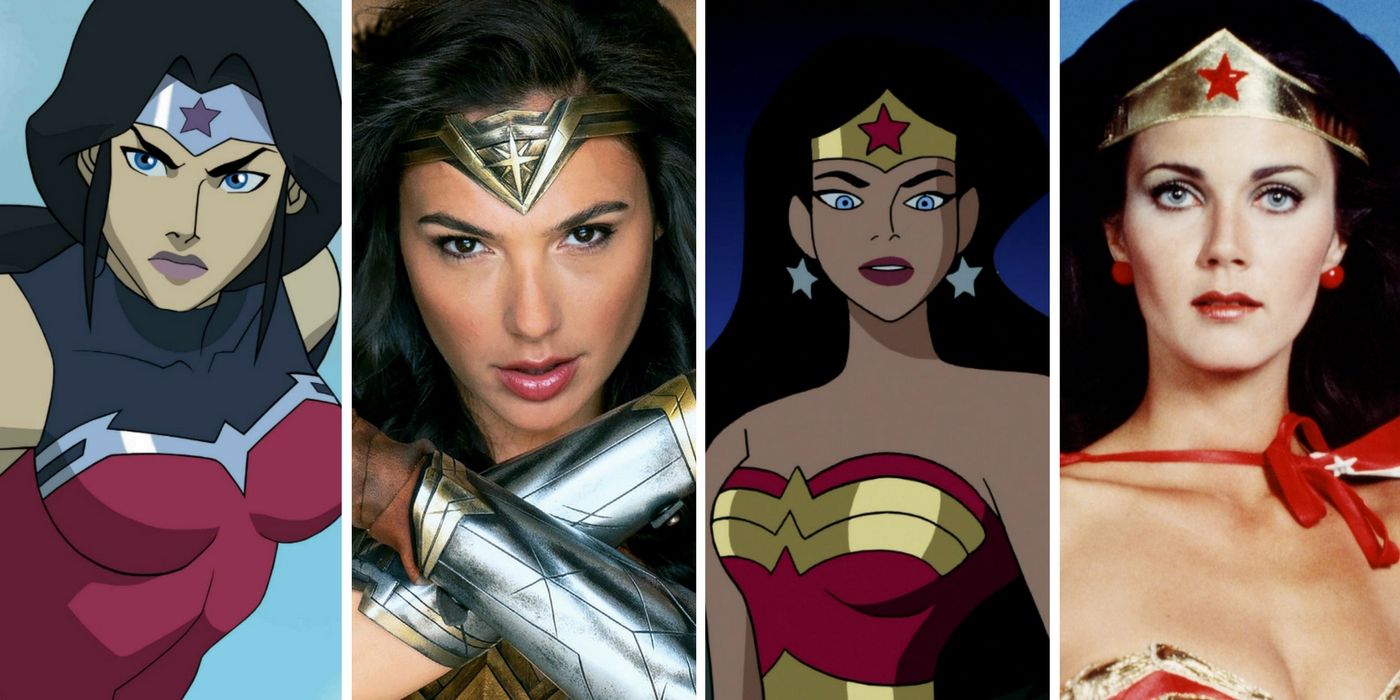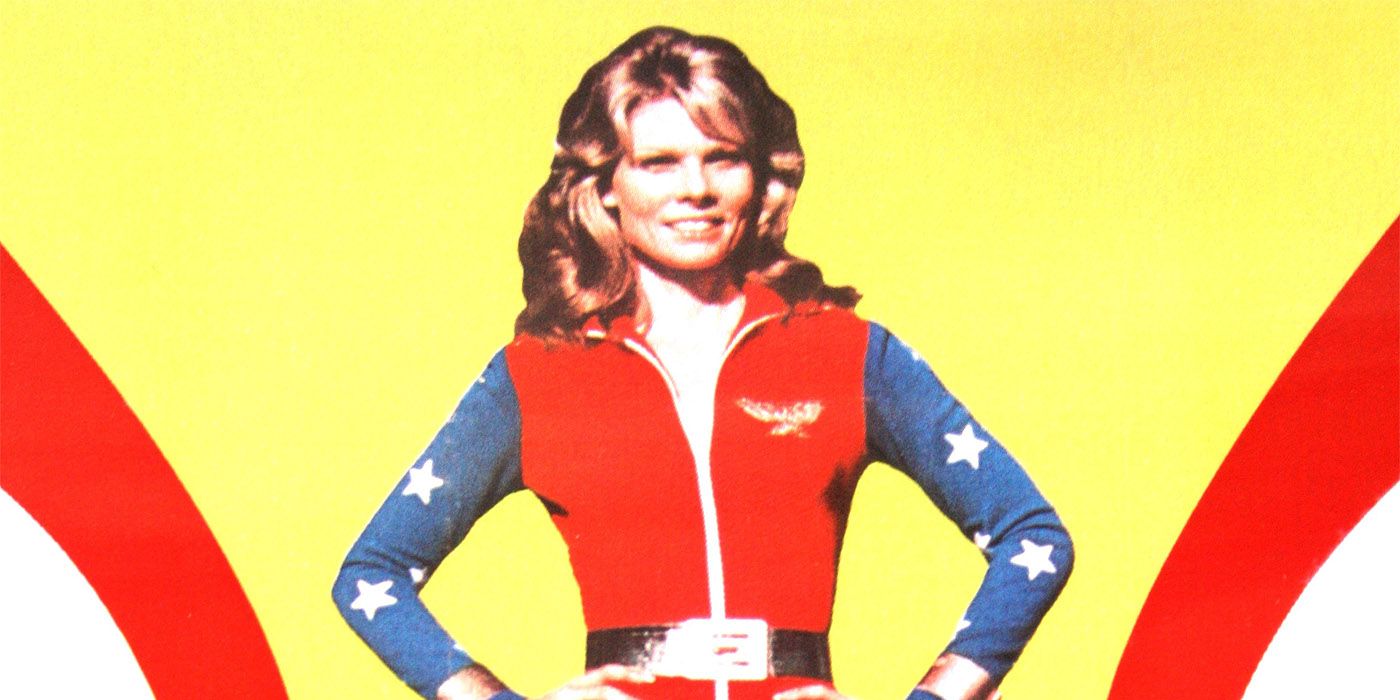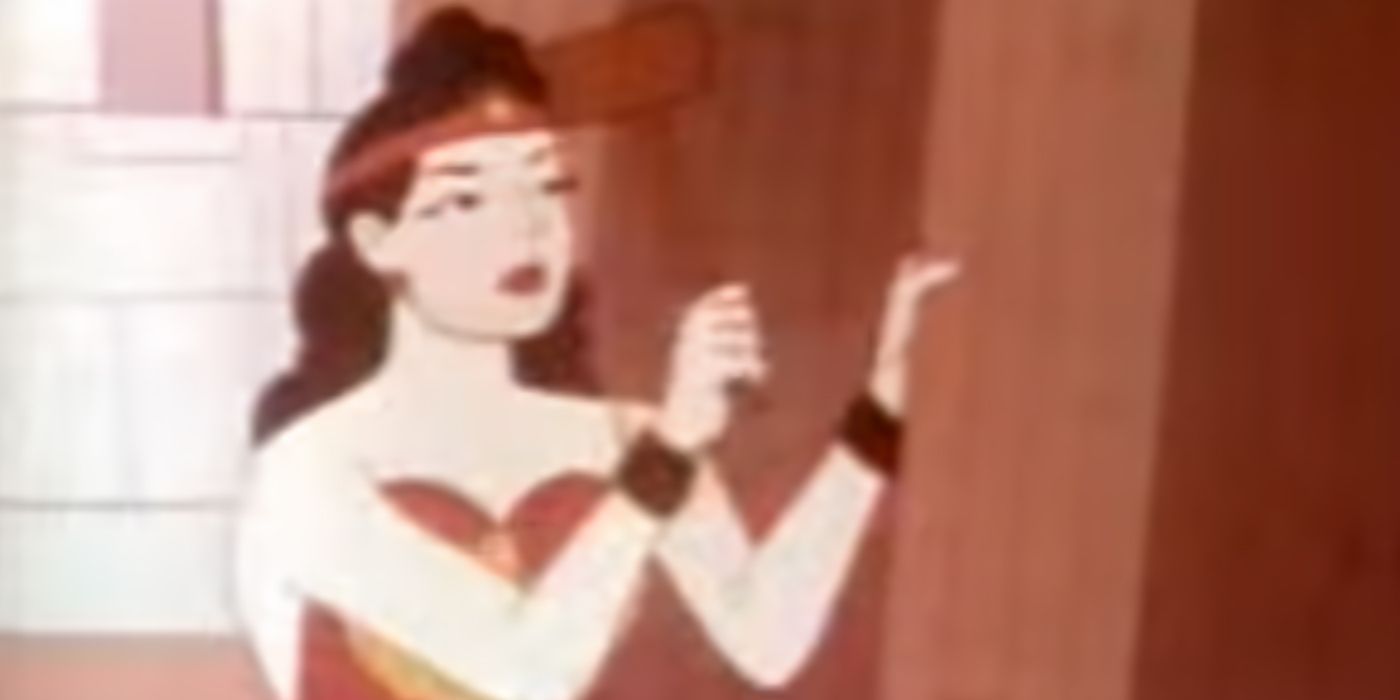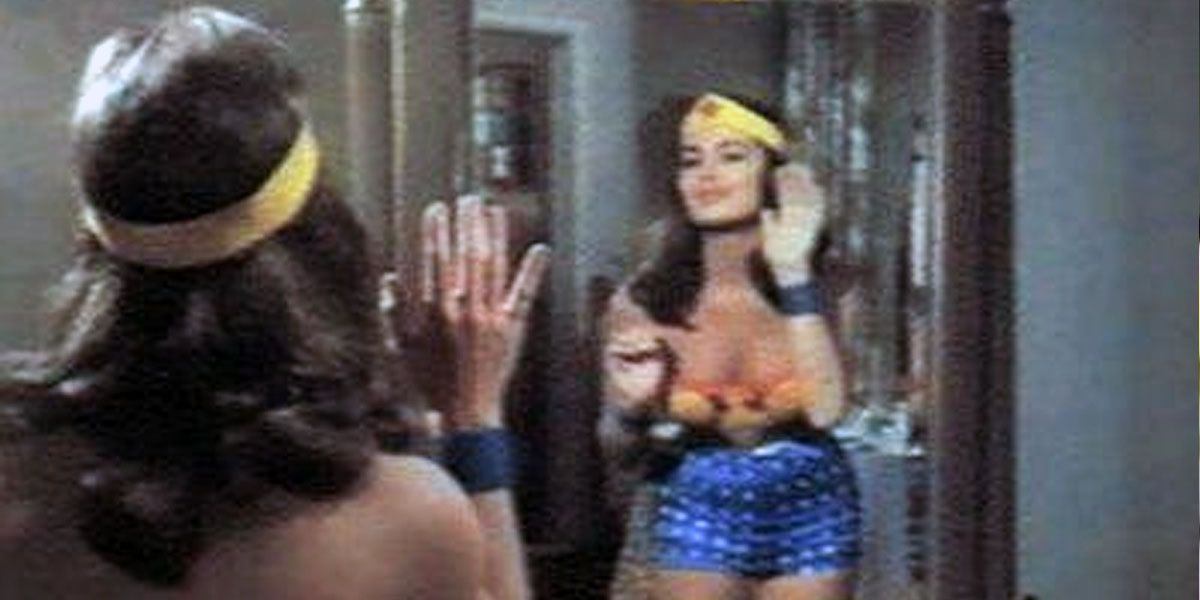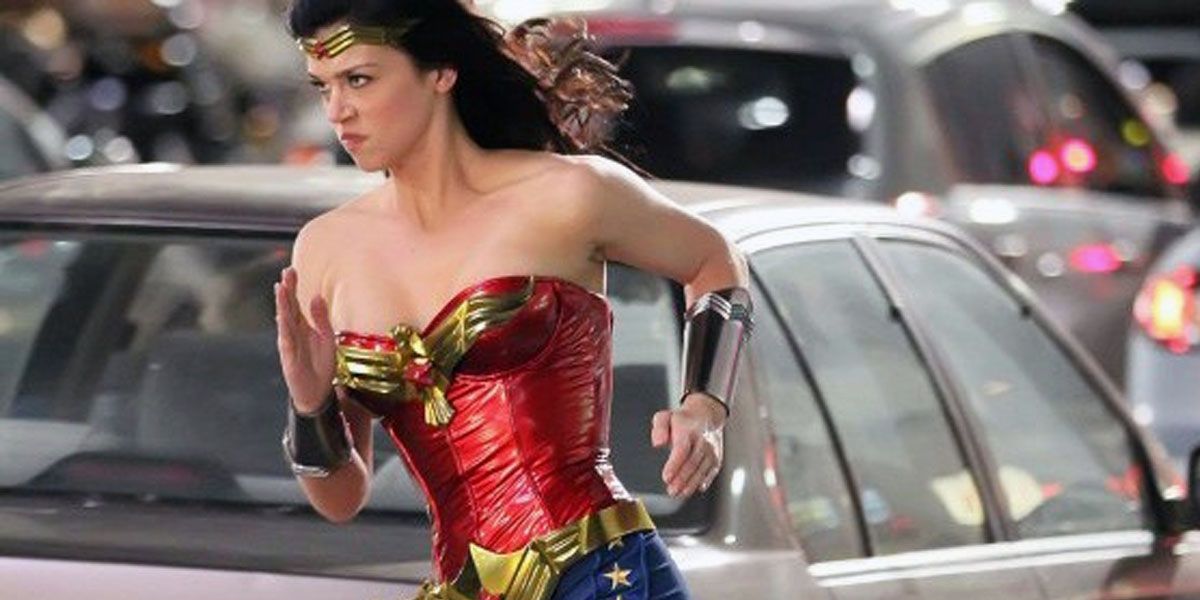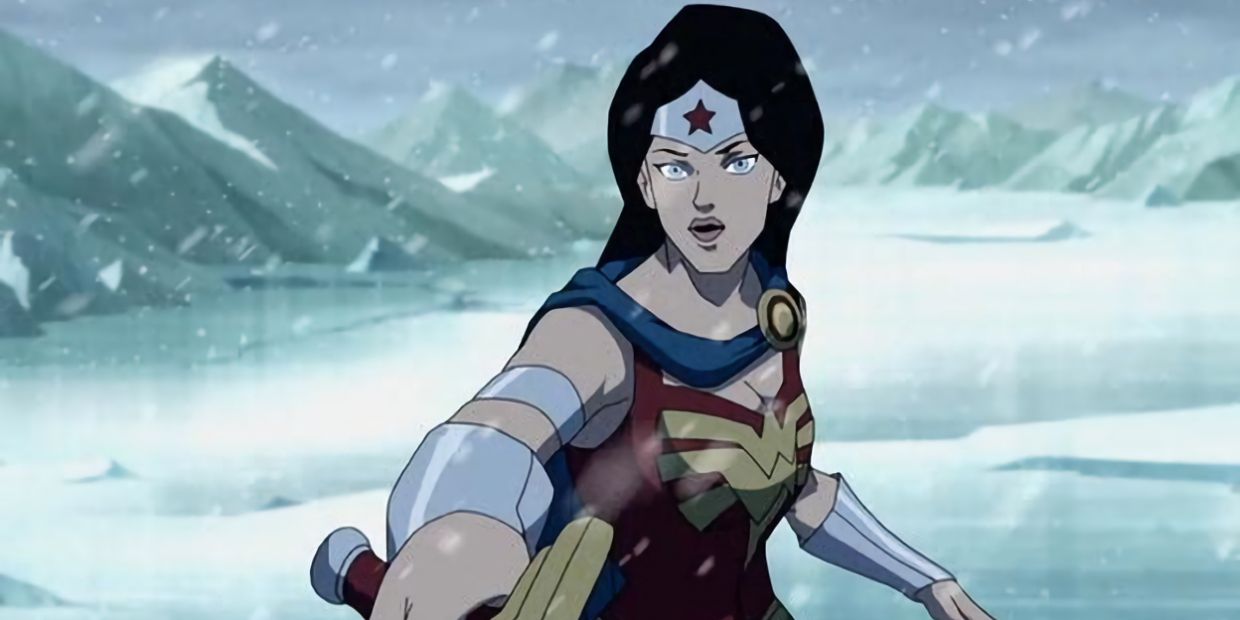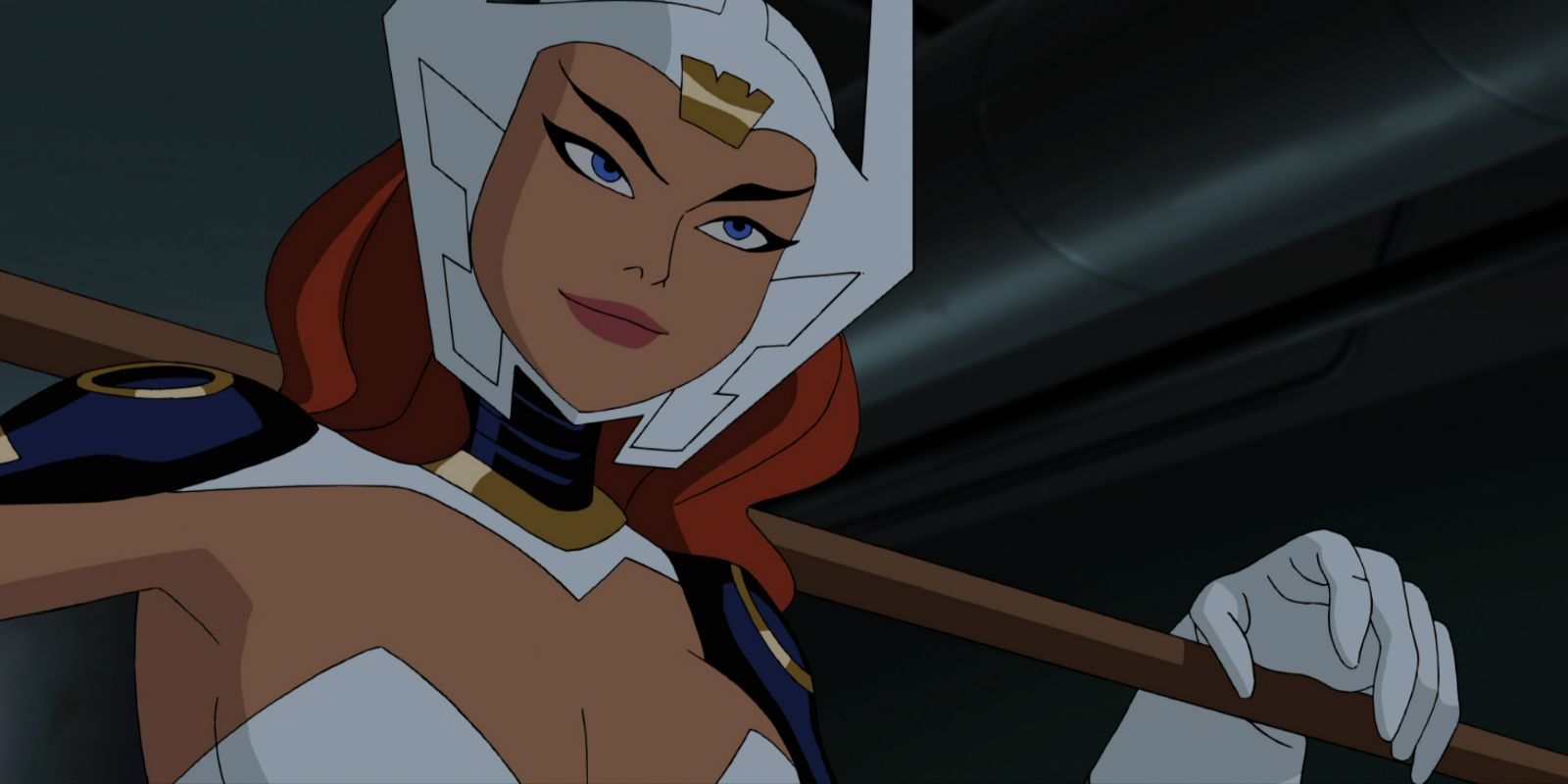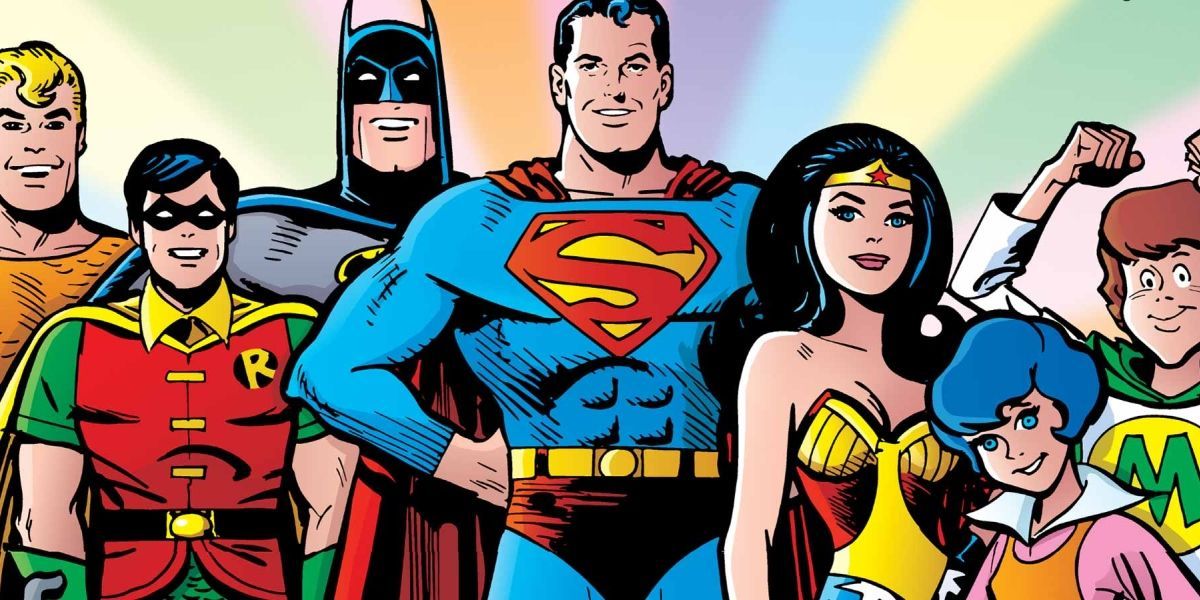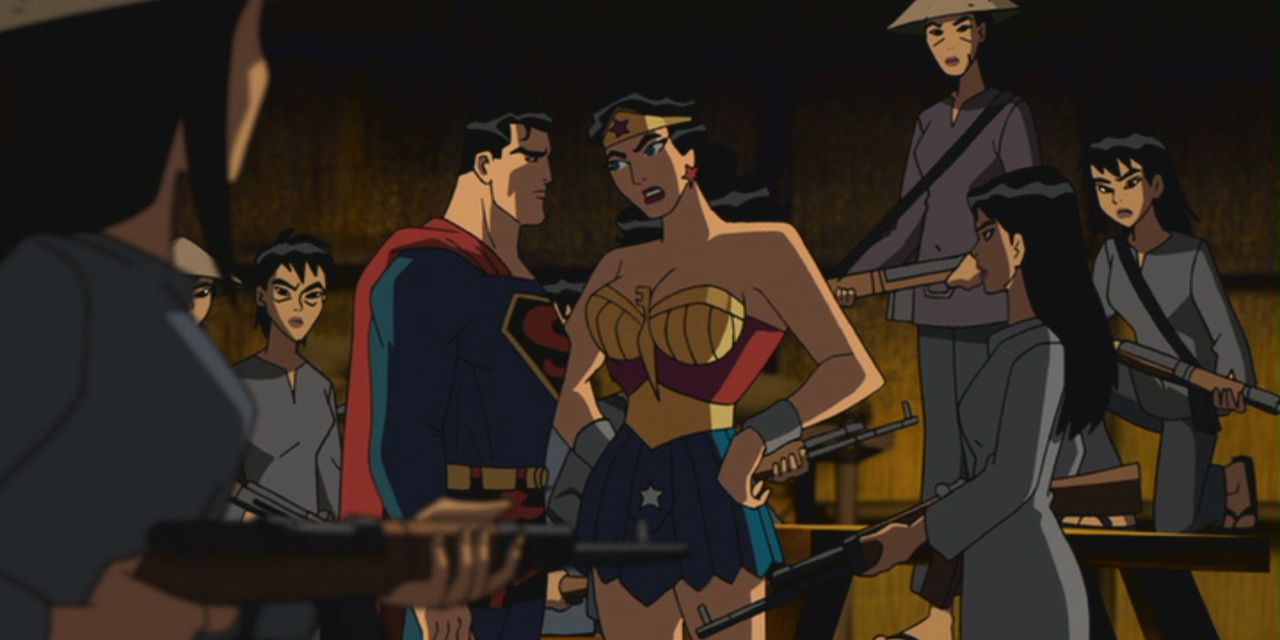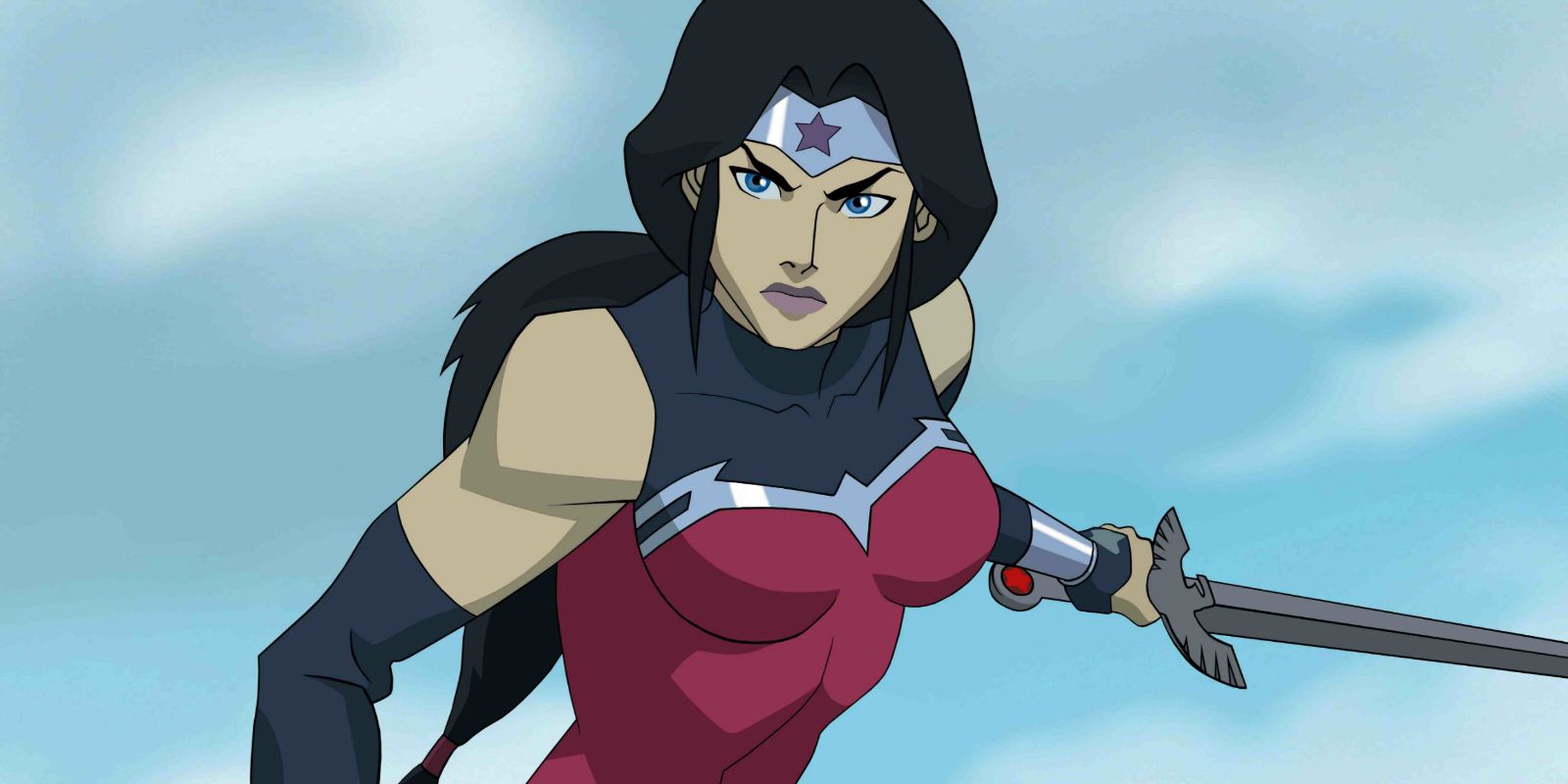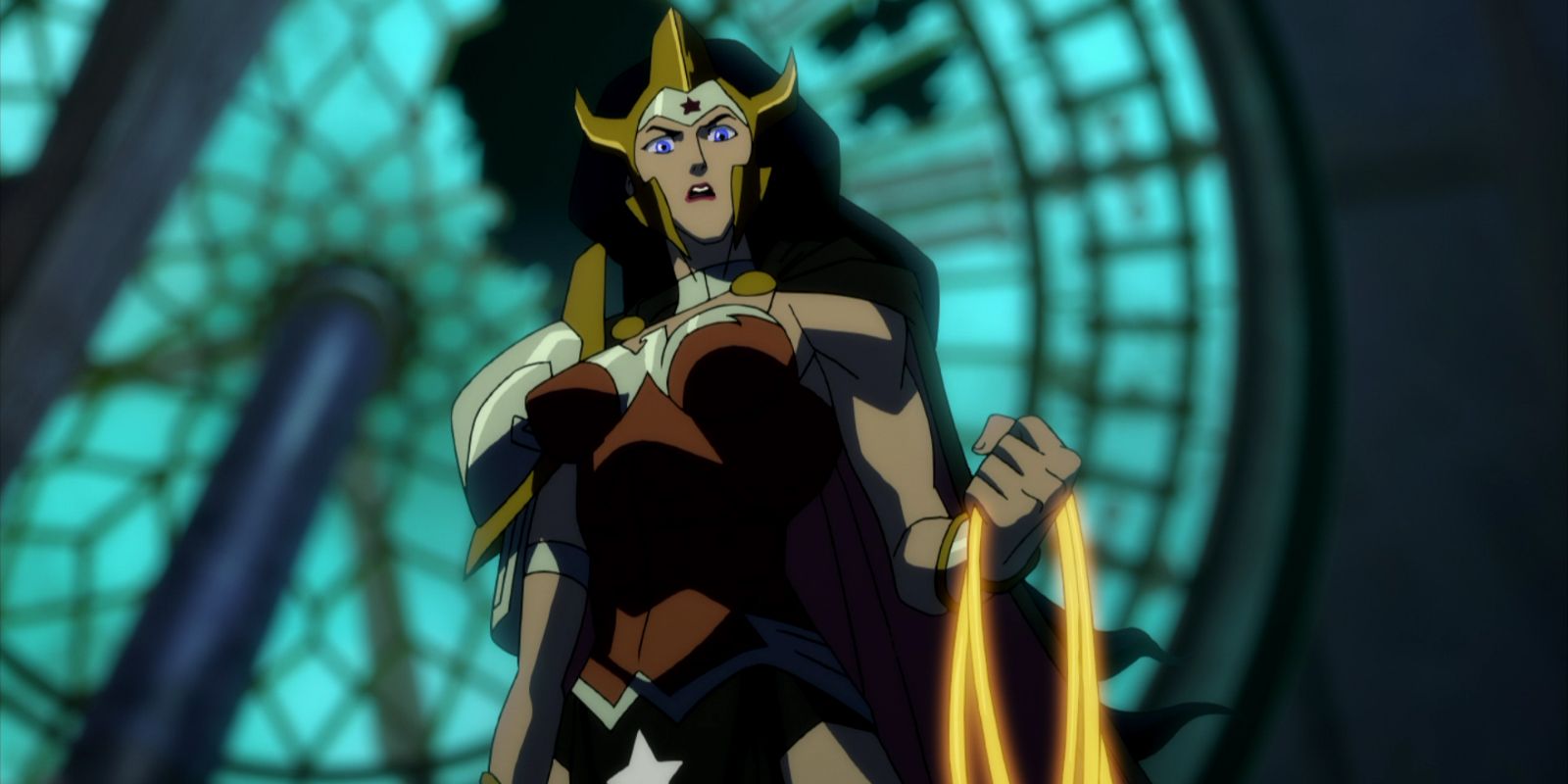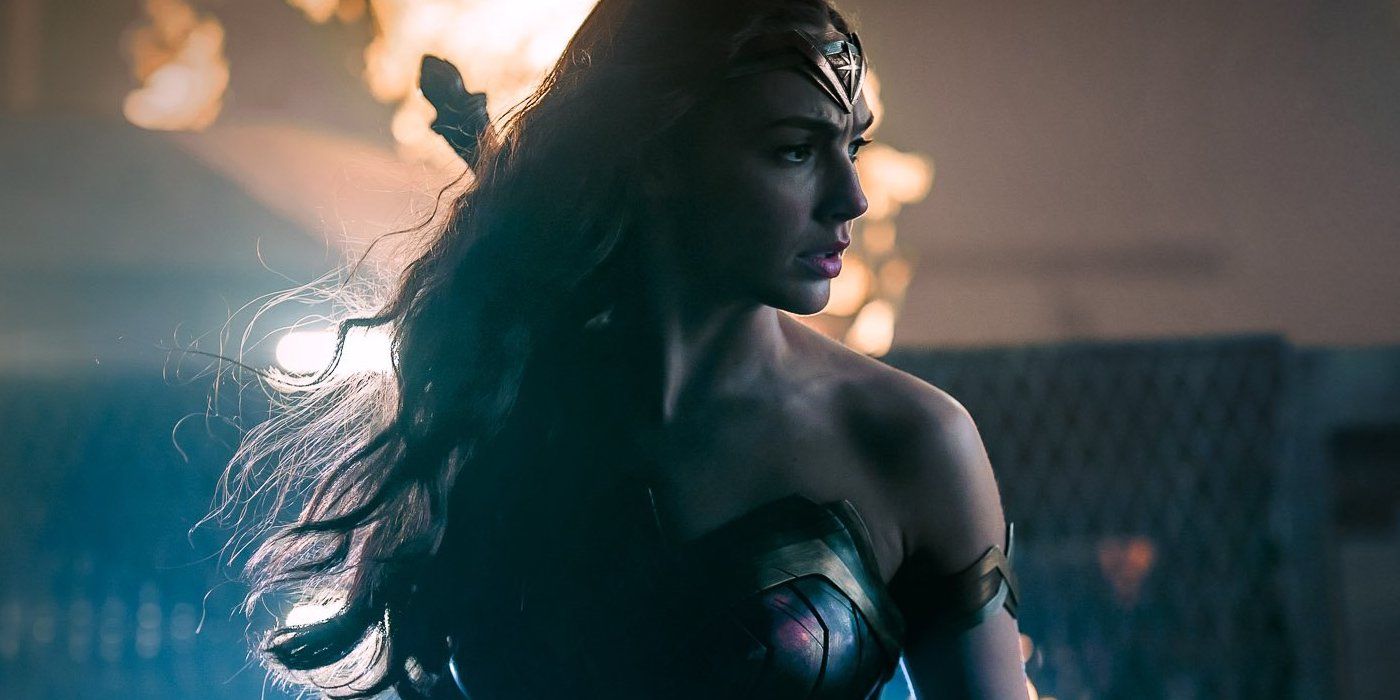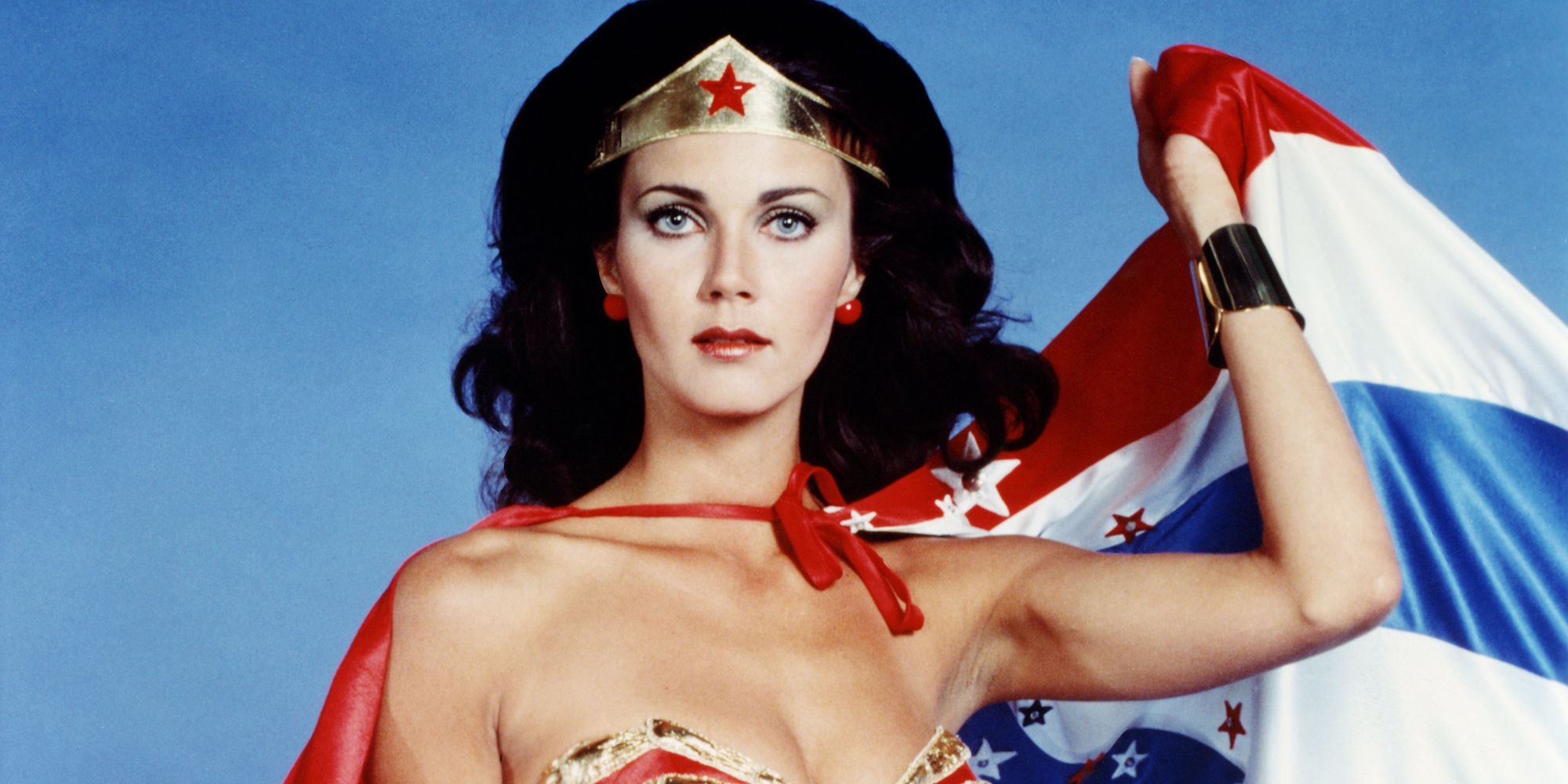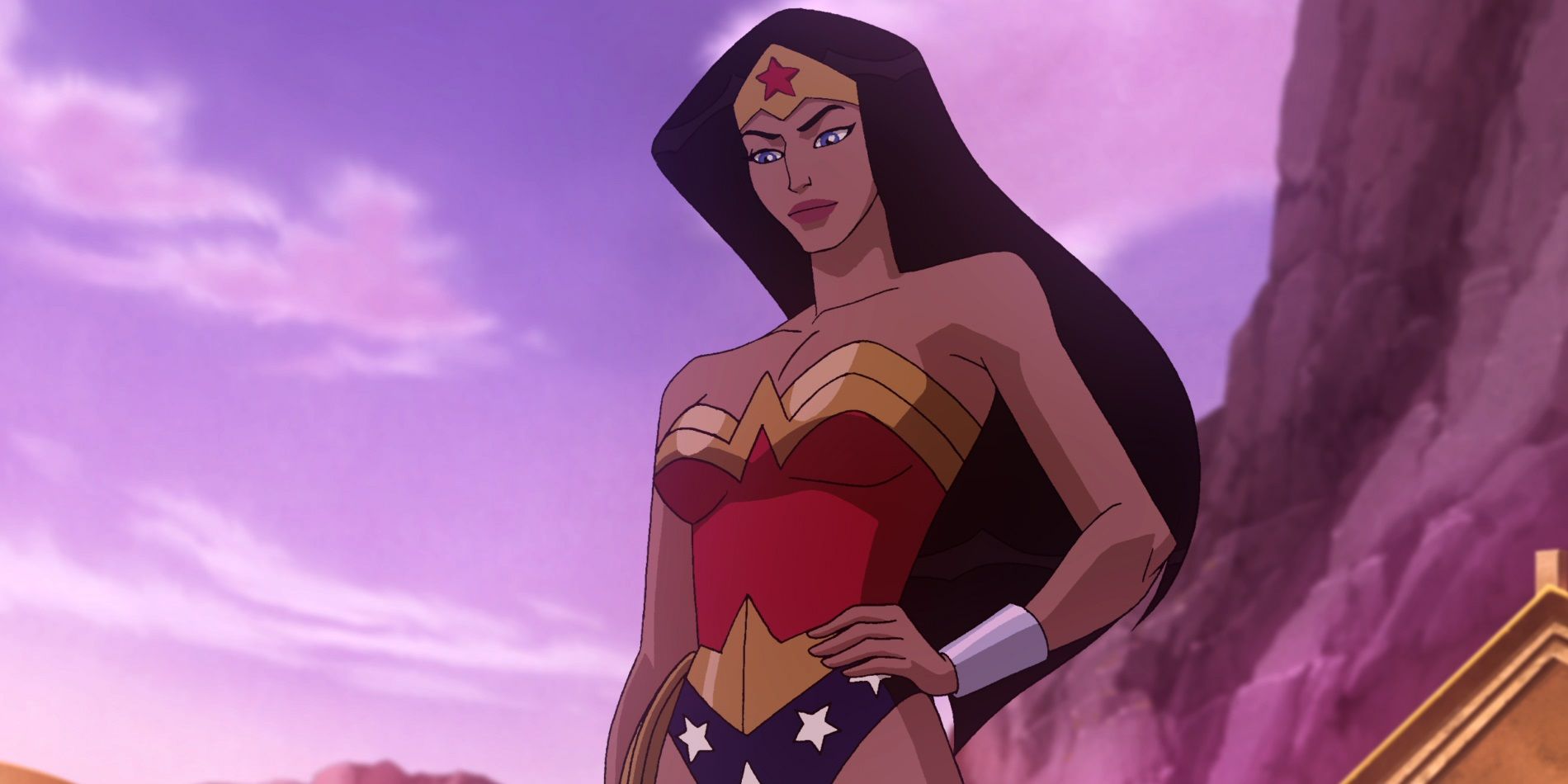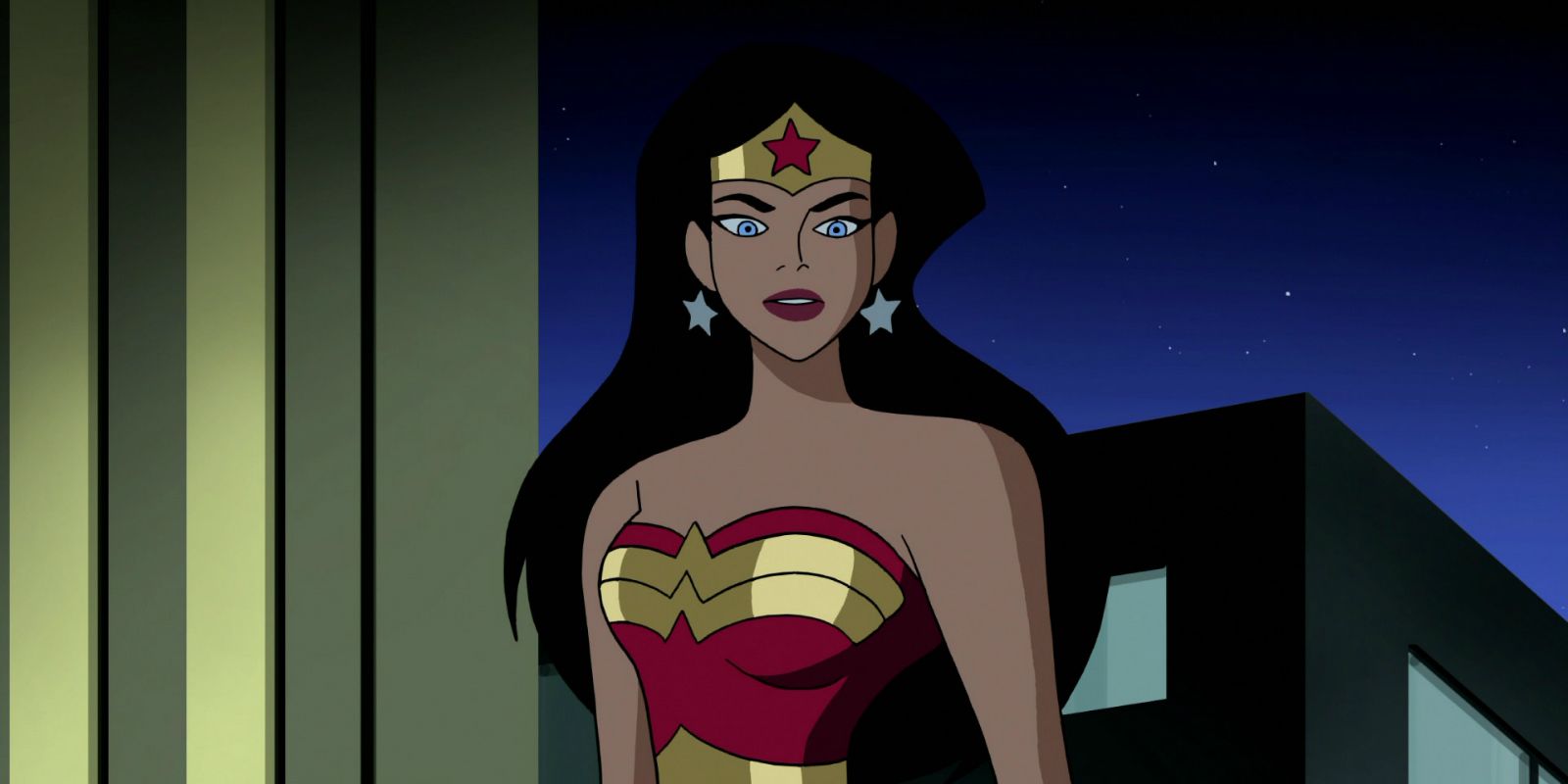Patty Jenkins' upcoming Wonder Woman movie is undoubtedly one of the most anticipated blockbusters releasing next year, for it will be the first time the iconic Amazonian princess has received her own solo, live-action adaptation. After being around for 75 years, that's not something that should be disregarded.
Wonder Woman is, after all, a global icon, having recently been granted honorary ambassadorship by the United Nations for the Empowerment of Women and Young Girls. The cultural impact of the character stems far and wide, with her becoming a symbol of feminism around the world. And although she's received her fair share of television adaptations over the years, in regards to the big screen, she is only getting started.
For the purposes of relevancy, we've only included adaptations (or would-be adaptations) in which Wonder Woman is a prominent character, not relegated as a background character. With that in mind, here is Every Wonder Woman Adaptation, Ranked Worst To Best.
15. Wonder Woman (1974)
Years after DC Comics attempted to bring Wonder Woman to the small screen, Warner Bros. TV and ABC made a second attempt with Cathy Lee Crosby starring in the title role. Originally envisioned as a pilot, Wonder Woman became nothing more than a TV movie. It is regarded as the worst Wonder Woman adaptation ever, not for its costume, its setting, or its comic book accuracy -- all of which are undeniably atrocious -- but rather for its overall premise, which extends to the blasphemous Diana Prince era the movie was based on.
For those that are unaware, the Diana Prince era refers to a brief time in the late '60s and early '70s in which Wonder Woman was stripped of all her powers and became more of a spy in the vein of a female James Bond. While there was certainly a lot happening behind-the-scenes, the change in character was largely influenced by the successful British TV series The Avengers (not to be confused with Marvel's The Avengers). Thankfully the studios came to their senses and made a third attempt the following year, with Lynda Carter starring as Wonder Woman.
14. The Brady Kids
After being around for 75 years, Wonder Woman finally made her big screen debut in Zack Snyder's Batman v Superman: Dawn of Justice earlier this year. Despite that, the Amazonian princess has had a long, prolific career appearing on television and in animated movies -- and it all began with her appearance on The Brady Kids -- a Saturday morning animated spin-off series based on the sitcom The Brady Bunch -- in 1972.
Although not an official adaptation of the character, The Brady Kids' Wonder Woman -- voiced by Jane Webb and appearing in only a single episode, "It's All Greek To Me" -- maintained the superheroine's Greek roots. Additionally, the series admirably represented Amazonians' penchant for using warrior-based games, such as the Ancient Olympic Games, in determining outcomes (see the latest issues of Wonder Woman: Rebirth).
Still, comic book accuracy -- in terms of character and costume -- was the only thing The Brady Kids got right about the character; everything else was superfluous.
13. Who's Afraid of Diana Prince?
Years before Wonder Woman appeared on The Brady Kids, DC Comics attempted to bring Diana Prince to life on the small screen following their incredible success with the Batman TV series, starring Adam West. Batman producer William Dozier ordered a pilot script from MAD Magazine writers Stan Hart and Larry Siegel.
Unfortunately, the script was considered incongruous, with the basic premise being that of a comedy. Furthermore, the series would not focus on the famed superheroine but rather Diana Prince herself, who was played by Ellie Wood, while Linda Harrison portrayed Wonder Woman. Dozier was forced to re-write the script, with only a five-minute portion of it being filmed.
Who's Afraid of Diana Prince? was the publisher's first attempt at adapting the character in live-action; and although the pilot never broadcasted (rather, it became short film), it convinced DC Comics to continue pursuing a live-action adaptation, one that would later be more in line with what Wonder Woman creator William Moulton Marston had in mind for the character.
12. Wonder Woman (2011) -- Adrianne Palicki
Decades after Lynda Carter's Wonder Woman TV series ended, Warner Bros. planned on bringing the character back to the small screen in live-action form. The studio failed to introduce the character during Smallville's run, so they opted to pitch the idea to various networks the same year Smallville ended in 2011.
Every network passed on the show, with NBC reassessing their options and decided to order a pilot episode. Adrianne Palicki was eventually cast in the role of Wonder Woman, though the version of the character appearing in the pilot was drastically different than the source material -- including an altered costume.
As with the aforementioned Who's Afraid of Diana Prince?, Palicki's Wonder Woman pilot never aired, though copies of it have surfaced online over the years. And while it may not be the worst Wonder Woman adaptation of all time, it's certainly up there. After all, hardly anything about the pilot resembles the Wonder Woman fans have come to know and love.
11. DC Super Hero Girls
The most recent adaptation on this list, and one that is drastically different than what people are used to seeing, is DC Super Hero Girls. Featuring the likes of Batgirl, Supergirl, and of course, Wonder Woman, DC Super Hero Girls is a web series that sees the most prominent female superheroes in the DC Universe attend Amanda Waller's Super Hero High, where they learn how to manage their powers while growing up in the awkward stages of high school.
Unlike in the comics, Wonder Woman -- who is voiced by Grey DeLisle-Griffin -- is the same age as the rest of the female heroes in this web series. And while she goes through the same ups and downs as the rest of them, certain aspects of her comic book characterization remain deep-rooted in the series, such as her personality, her competitiveness, as well as her natural leadership skills. It may not be the greatest Wonder Woman adaptation, or the most accurate, but it absolutely is worth watching.
10. JLA Adventures: Trapped in Time
It may not be the greatest animated feature ever, but Giancarlo Volpe's JLA Adventures: Trapped in Time is exactly the kind of ambitious storytelling Warner Bros. needs in their animated movies. However, it's also a call back to the old days of DC Comics animation, specifically Super Friends -- even though Volpe has gone on record saying he's not a fan of the '70s animated series.
Trapped in Time is a modern re-imagining of the old Super Friends episode "Secret Origins of the Super Friends," in which the Legion of Doom travels back in time to prevent Batman, Superman, and Wonder Woman from becoming superheroes. In the case of the movie, the story focuses only on Superman -- but that's not to say the rest of the Justice League isn't involved in thwarting the plot.
Once again voiced by Grey DeLisle-Griffin, Wonder Woman plays an integral part in saving her fellow Leaguer, Superman. After all, it's her Lasso of Truth that corroborates Dawnstar and Karate Kid's -- who followed the Legion of Doom to the past in order to stop them -- story.
9. Justice League: Gods and Monsters
Although the majority of animated movies released since 2014 have been a part of the DC Animated Movie universe, there have been a few strays that remain unconnected to the over-arching narrative. One of which was this year's Batman: The Killing Joke, and another is last year's Justice League: Gods and Monsters.
Taking place in an undetermined alternate reality, the Justice League movie primarily featured alternate versions of DC's core superheroes, Batman, Superman, and Wonder Woman, as well as all of their supporting characters, such as Victor Fries, Lois Lane, and Steve Trevor. In this storyline, Amanda Waller is the President of the United States, with the Justice League maintaining order throughout the world.
Each superhero, though, was different, with Kirk Langstrom being Batman, Hernan Guerra being Superman, and Bekka being Wonder Woman (voiced by Tamara Taylor). Despite the different alter-egos and drastically different origin stories, Wonder Woman's portrayal sustained the character's distinct personality.
8. Super Friends, Superman TV series (1988)
After making her debut appearance on The Brady Kids, Wonder Woman later appeared in every incarnation of the Super Friends series, from its inception in 1973 till its conclusion in 1986, and even made an appearance in a single episode of the series' spin-off series, Superman, in 1988.
For the bulk of the series' run, Wonder Woman was voiced by Shannon Farnon, who was recast after voicing the prominent character for over a decade. She was replaced by Connie Caulfield, who voiced Wonder Woman in the 1984-1985 series Super Friends: The Legendary Super Powers Show. For the final series, however, Caulfield was replaced by B.J. Ward, who voiced the Amazonian princess in The Super Powers Team: Galactic Guardians.
The entire Super Friends series rates amongst the best superhero animated shows of all time and the depiction of Wonder Woman solidified the character's place on television. However, the reason the series is listed lower on this list is because Wonder Woman's powers were never fully realized and too many things about her were left enigmatic.
7. Justice League: The New Frontier
After the success of Superman: Doomsday, Warner Bros. continued to produce more DC Comics animated movies, with Justice League: The New Frontier having been the next project in the pipeline. Based on the award-winning, six-issue limited series DC: The New Frontier. The film featured all of the core Justice League members, but one scene in particular, in which Wonder Woman stands up to Superman, demonstrates why this film is one of the best the studio has ever released.
Superman and Wonder Woman have always shared the same ideals of truth and justice, but this one scene exemplifies the differences in how they achieve those two ethical principles. Superman believes everyone should live and achieve justice through law and order. Wonder Woman, on the other hand, believes in a more archaic system, one that sees justice attained through means of fairness. This one scene alone signifies why The New Frontier is one of the best adaptations of Wonder Woman.
6. DC Animated Movie Universe
Not to be confused with the DC Animated Universe, the DC Animated Movie Universe (as it's colloquially known amongst fans) encompasses the bulk of animated films released within the New 52 and subsequent DC: Rebirth continuities. Beginning with Justice League: War in 2014, and continuing through next year's Justice League Dark and Teen Titans: The Judas Contract, the DC Animated Movie Universe represents some of the best Wonder Woman adaptations ever to release.
Michelle Monaghan provided Wonder Woman's voice in the first movie, with Rosario Dawson voicing the character in all of the following adaptations. Although the movies themselves have not been up to par with previous DC animated movies, Dawson has been praised for her portrayal of the character, which is very much in line with the character's comic book depiction in recent years. It's unclear if Dawson will continue to provide her voice for Diana Prince, or if she will be replaced for any follow-up sequels.
5. Vanessa Marshall -- Justice League: Crisis on Two Earths, Justice League: The Flashpoint Paradox
Originally conceived as a bridge between the Justice League animated series and its sequel, Justice League Unlimited, the animated film Justice League: Worlds Collide was later reworked into Justice League: Crisis on Two Earths. In the film, the Justice League -- including Wonder Woman, who is voiced by Vanessa Marshall -- travel to a parallel universe to defeat the Crime Syndicate, their evil counterparts. Although Superwoman isn't Wonder Woman's counterpart in the movie, the two developed an unyielding antagonism towards each other, something very much resembling their relationship in the comics.
A few years later, Marshall reprised her role as Wonder Woman in the critically acclaimed film Justice League: The Flashpoint Paradox, based on the Flashpoint comic book limited series. In this storyline, which is set in an alternate reality, the Amazonians and the Atlanteans are at war with each other, after Diana Prince killed Aquaman's wife, Mera, while the two were having an affair. Even though this version of the character is nothing like the traditional Wonder Woman we know of, it is an accurate representation of the Wonder Woman in the Flashpoint storyline.
4. DC Extended Universe
Although we haven't seen much of Gal Gadot's take on Wonder Woman, we would be remiss if we didn't include the DC Extended Universe version of the character on this list, who is undoubtedly one of the best things the shared universe has going for it right now. With maligning critic reviews and a general negative consensus concerning the DCEU, one of the most widespread acclaims the franchise has earned is in regards to Wonder Woman.
Heavily resembling the New 52 and DC: Rebirth iterations of the character, Gal Gadot's Wonder Woman is one of the most comic book accurate adaptations ever conceived, especially in live-action. When she was initially cast in the role, a substantial number of detractors surfaced online -- though fans and general audiences tend to agree that Gadot has since perfected her role as the Amazonian princess, even though we've only seen a small sample of her version of the character.
3. Wonder Woman TV series (1975)
There is perhaps no one more synonymous with Wonder Woman than Lynda Carter, whom many people credit with popularizing the character with mainstream audiences; something that Warner Bros. is looking to do with their Wonder Woman movie next year. As previously mentioned, the 1974 Wonder Woman film is considered an atrocity to fans of the comic book character, which is why Warner Bros. and ABC opted not to move forward with their planned TV series.
Instead, the two studios decided to redevelop the pilot featuring a Wonder Woman more faithful to the source material -- which it was. The Wonder Woman TV series became the most successful adaptation of the character, and it remains influential to this very day. For example, the incorporation of Diana Prince's spin transformation originated in the series and was later adapted into the comics. Wonder Woman may have been popular with comic book readers for decades, but the 1975 TV series arguably turned the Amazonian princess into a global icon.
2. Wonder Woman (2009)
Shortly after Warner Bros. achieved overwhelming success for Justice League: The New Frontier, the studio commissioned a solo Wonder Woman animated movie to release in 2009. Starring Keri Russell as the voice of Diana Prince, the movie is based on the seven-issue, comic book story arc, Wonder Woman: Gods and Mortals, the first storyline in the character's post-Crisis on Infinite Earths relaunch series.
The reason this adaptation ranks so high on our list is primarily due to the characterization of Diana Prince and her postfeminist ideals. The movie accurately portrays the character without going overboard. Plus, the action scenes are some of the best in the industry and can arguably be compared to big-budget flicks on the big screen.
Furthermore, the 2009 Wonder Woman movie is arguably the best standalone adaptation of the character ever -- though it's contentious as to whether this depiction can merit replacing the DC Animated Universe's version of Diana Prince, which of course had much more time to develop the character.
1. Susan Eisenberg -- DC Animated Universe, Superman/Batman: Apocalypse, Justice League: Doom
As one can see, there have been several adaptations of Wonder Woman (and other DC Comics characters) over the decades, though perhaps the most famous period of them all was in the early '90s and mid-'00s; a period which has since become known colloquially as the DC Animated Universe. If the Golden Age of Comics existed from the late '30s to the early '50s, then the Golden Age of DC Comics Animation was the DC Animated Universe.
Beginning with Batman: The Animated Series and ending with Justice League Unlimited, the DCAU has influenced the DC mythos more than people realize, introducing characters such as Terry McGinnis and Harley Quinn into continuity. However, for this list, we'll focus on Wonder Woman, who appeared in the Justice League and Justice League Unlimited series. Iconically voiced by Susan Eisenberg, who reprised her role as Diana Prince for Superman/Batman: Apocalypse and Justice League: Doom, the DCAU successfully brought the post-Crisis version of Wonder Woman to life on the small screen.

